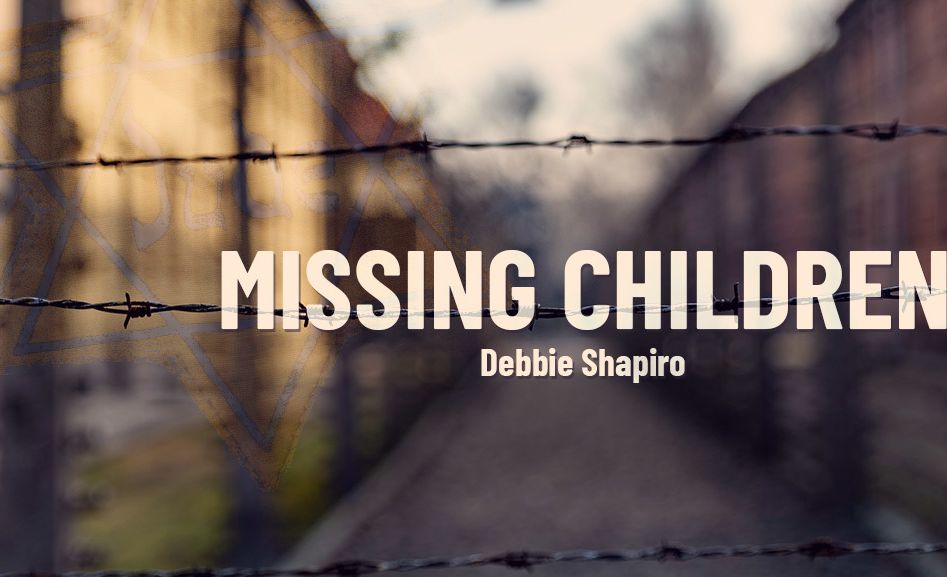
The White Angel of Auschwitz
I began checking one infirmary barrack after another. Everyone knew the name Orlean, but no one knew where she could be found...

The White Angel of Auschwitz: Rebbetzin Tzila Sorotzkin
I and untold others were heartbroken by the news from Jerusalem of the death of Rebbetzin Tzila Sorotzkin (formerly Orlean), a noted teacher in the Bais Yaakov seminary in Cracow, and protege of Sarah Schenirer, founder of the first Bais Yaakov Jewish seminary for women.
What is legendary about the Rebbetzin is the scope of her accomplishments in the Hell known as Auschwitz-Birkenau. Much of it I witnessed personally; the rest I heard from my wife, from the Rebbetzin's seminary students, and from her fellow inmates in Auschwitz, a chapter in heroic history that warrants an entire volume.
FIRST ENCOUNTER IN BIRKENAU
I shall never forget my first encounter with the Rebbetzin (then Mrs. Tzila Orlean) in the women's infirmary in Birkenau. It was a Shabbos afternoon, and I and some other Auschwitz slave laborers were paving the road near the infirmary. I heard that Rebbetzin Tzila worked in the infirmary.
Contacting an Orlean was a stratagem that could lead to uncovering the whereabouts of my wife, whom the Nazis separated from me on our arrival in Auschwitz. (In fact, finding my spouse was my primary purpose for requesting that the barrack supervisor assign me to work in this area.)
I began checking one infirmary barrack after another. Everyone knew the name Orlean, but no one knew where she could be found. Gathering courage, I marched into the hospital's main office. I no sooner crossed the threshold when a tall, stately woman blocked my path, shouting "Raus! Vas suchen sie hier?" (Get out! What are you looking for here?)
"I'm looking for Mrs. Orlean" I answered meekly.
On hearing the name Orlean, she mellowed into contrition. "You'd better go back to work," she said with some deference. "You're not allowed to be here. Just tell me where you work. I'll find her and send her to your group."
About half an hour later, a young lady strode over to us and said, "My name is Orlean. Is someone looking for me?"
"Yes," I answered. "I am. My name is Friedenson"
"Friedenson!"she exclaimed. "From Lodz? There's a Friedenson here, and I didn't know about it? How can it be?"
"Yes," I answered. "I'm the son of Rabbi Eliezer Gershon Friedenson. You should know me. You were at our house for a Bais Yaakov conference in Lodz. It was about eight or nine years ago."
"Of course I remember your house. And also your mother and two young boys. Are you one of those boys?"
"Yes," I said, "but I'm not a young boy anymore. I'm already married. I was brought here with my wife."
"Have you seen her?" she asked.
"How can I see her? I'm not allowed to leave this base. I don't know if there was a selektion of the women when we arrived, or where she might be now. All I know is that the women who were brought from Starochovitz are in Block 25."
"Block 25?" she paused to reflect. There was a time when Block 25 had been the last stop before the gas chambers. "I know the block supervisor. She's a shrew! But wait, I have an idea!"
Turning on her heels, she disappeared. Two minutes later, she returned, flaunting a piece of paper. "I accomplished something," she proclaimed proudly. "I told the head secretary that I must escort someone from Block 25 to the infirmary. Here's the pass. If your wife is in Block 25, I will bring her here."
It didn't take long, and Rebbetzin Tzila, presenting the pass, brought my wife to the infirmary for "treatment." When I saw Mrs. Tzila the next day I asked her if she hadn't perhaps jeopardized her job… and maybe even her life… to obtain my wife under false pretenses. I shall never forget her answer: "Here in the camp we are constantly being beaten and punished for no sin. Should I then be afraid of being penalized for doing a mitzva?"
For that favor and, needless to say, for all the others for proving to me that my wife was still alive, I have remained grateful all my life. During the next six months, Rebbetzin Tzila provided my wife with clothing, medical care and moral support. She brought her into the fold of Bais Yaakov students who worked under her supervision at the infirmary.
But this is not the main focus of my essay. What I want to stress is how the Rebbetzin also cared for complete strangers, people with whom she had no connection.
MATERS OF LIFE AND DEATH
After she had helped me find my wife, she asked if I would be returning the next day. I said I didn't know; it depended on the barrack kapo.
"Try to come," she said. "Tomorrow is Sunday, and the Germans won't be here. There'll be lots of food, enough for you and whomever you wish to bring. You could use a nourishing soup."
It was predestined that my kapo sent me back there the next day. As Rebbetzin Tzila had recommended, I brought a guest, a Chassidish young man, who had come from Lodz only a few days earlier and whose piety had made a strong impression on me. All skin and bones, he struck me as a deserving candidate for some nourishing food.
Rebbetzin Tzila was waiting at the barrack door. Lunch time she brought us two brimming bowls of boiling, freshly made soup. I'm not ashamed to say that I was carried away with joy by the mere sight of the hearty broth, but my friend was beside himself with anguish. "Do you see what's swimming around in this soup?" he asked apprehensively. "It's treife, non-kosher meat! I'm not going to eat this! It's not for me! I overcame the temptation in the ghetto until now, and I'm still living…"
His words brought Rebbetzin Tzila to tears. "You don't want to eat?" she cried.
"Have you forgotten where you are? You're in Auschwitz, in the concentration camp, and this soup can keep you alive. You're not allowed to say you won't eat. It's a matter of life and death the Torah says 'choose life.'
Eat, eat! You must eat! It's a mitzva to eat! A number of tzaddikim, righteous people, here said so. There are many religious Jews here who never ate in anyone's house, but here in the camp they eat everything…. It's a mitzva to eat! Over there [pointing to a neighboring barrack near the fence] is the Novominsker Rebbe from Warsaw. On your way out, stop in to see him. He'll tell you whether or not it's a mitzva to eat!"
I can't recall everything Rebbetzin Tzila said in her long speech about matters of life and death, but I do remember how delighted she was when my friend took spoon in hand and dug in. She waited until he finished, then handed him a piece of bread, saying, "I had this for you when I saw you, but I withheld it. I knew if I gave it to you, you wouldn't eat the soup. Now that I've convinced you to eat the soup, take this also, and may it be to your good health! Remember, in Auschwitz you can't afford to be overly righteous!"
INHUMANE CONDITIONS, THE HUMAN TOUCH
Twice again I was privileged to cross paths with Rebbetzin Tzila in Auschwitz. On both occasions, she helped several of us through serious difficulties. Shortly after that, I lost my work assignment in the women's camps, and I lost contact with both her and my wife, until after the war.
After the liberation, when I was reunited with my wife, I heard from her and from others who were close with her for many months in Auschwitz numerous accounts of her magnanimous deeds how from her infirmary barrack she organized a legion of Bais Yaakov girls to care for the weak and sick, and to fortify their own faith with lighting Shabbos and Chanuka candles, praying whenever possible, and so on.
A virtual spiritual beacon of Bais Yaakov, Rebbetzin Tzila felt a sacred responsibility to nurture the "children of Sarah Schenirer." She thirsted to take newly arrived Bais Yaakov students under her wing, to set their hearts to rest, and, primarily, to assure they remain steadfast in their ancestral faith. To keep their moral fiber intact, to retain their mentschlichkeit (human decency), not to become tainted by the camp, as she was wont to say, presented a formidable task, as the appallingly squalid conditions tended to harden the hearts and pollute the speech. Sapped by starvation and frightened by the licking tongues of the crematoria, an inmate usually developed a savage self centeredness which brought him to see and think only of himself. Multiply that by famine, filth, foul odor, affliction, flogging, constant fear for one's life, and the proximity of the gas chambers.
Rebbetzin Sorotzkin, however, never cringed before the challenge. She proclaimed that precisely there, in that hellish abyss, one must strive to intensify one's refinement, sensitivity and Jewishness. Under her guidance, the girls developed into models of virtue and modesty, smoothing the path of the suffering throughout those grueling years. In fact, many of the women and girls in the various camps had completed their "active duty" and graduated her "basic training" in Auschwitz. They served time with her in Birkenau, where they were infused with her spirited and unflinching heroism. Later, when they were sent from Birkenau to Stutthof, Mauthausen, Bergen Belsen and other women's camps, they went armed with the weaponry of her influence.
It is only partially true that Rebbetzin Sorotzkin accomplished so much because of her special status. Providence had so divined that she come to Auschwitz from Slovakia when she attempted to escape from Cracow in 1941. Auschwitz was not yet an extermination camp, but somewhat of a "respectable" concentration camp. With her advanced education and mastery of languages, she was engaged first as a nurse in the women's infirmary, and then as secretary in the main office.
She saw this promotion as a "calling sent by the Creator to provide for others," as she rededicated herself to her imperiled brothers and sisters. For hundreds, she was the embodiment of a "saving angel."
I described earlier how she implored the Chassidic young man to consume the treif soup. How astonished I was later to learn that she herself ate no treif during the entire length of her stay. One could rationalize that in the infirmary there was no dearth of food, and she could easily bypass the treif. But the truth was that even those who had food in Auschwitz always went hungry. Her determination to avoid treif was a formidable challenge requiring superhuman strength. An even greater feat, perhaps, was not expecting others to do the same.
THE BREADTH OF HER INFLUENCE
Rebetzin Sorotzkin's humanitarianism was not limited to singular or sporadic favors. Her work, as my wife has always told me, embodied a secret, coordinated and all encompassing kindness mechanism that functioned as a lifeline to her grieving kinsmen.
How did she do it?
With the influence that came with her work assignment, she planted her students in strategic positions: in the kitchen, bread and clothing commissaries, and barrack management as well as in "nursing." These placements served a dual purpose, to lighten the burdens of daily life for her assistants as well as for those they assisted. She taught the girls not to exploit their position for their own self aggrandizement but to aspire to loftier ideals: to give of themselves and their resources… shoes and warm garments for those who had to work outdoors in the bitter frost… bread and soup for the weak… caring doctors for the sick…. To run this "organization" required Herculean strength, which her assistants soon discovered she more than adequately possessed.
There is no question but that her boundless reach, extending indirectly even to the men, of which I was only one, is attributable to the high level of respect she earned at the top echelons of administration, particularly the infirmary's female Jewish and non Jewish doctors.
That she could enlist the personnel to pursue an agenda unrelated to her work assignments, was in itself a marvel, especially since the officials were obviously not her compatriots. She lived in a world unto herself, where she prayed and did mitzvos as at home, never compromising her ideals. Even the most refined of the female doctors were not "her type." One could never imagine her commingling with them… yet they somehow responded to her every request.
I can offer but one explanation, and that is the Biblical passage: "The nations will see that the Name of the Creator is called upon you, and they will be awestruck by you." It was no doubt her erudition and wisdom that not only impressed but enchanted the high ranking women. But I am even more certain that it was her fear of Heaven, modesty, majesty, and innately spiritual mien that inspired her beholders to yield to her drive to give shelter to the shattered.
Not only were the camp inmates touched, but also the Nazis. Once, mustering courage at a selektion in the infirmary (selektions there were frequent), she approached a Nazi and successfully convinced him to reduce his quota of girls and women. When later asked how she summoned the nerve, she explained that something in his face reflected a bit of menschlichkeit. Since unlike the others, he didn't shout, threaten, beat anyone or evoke fear, she simply appealed to his conscience by saying: "You know what will happen to the girls you are taking. You probably consider them unproductive and therefore worthless, but you are making a mistake. They are not as sick as they look. There's hope for all of them." With that she won her case, and he discontinued the selektion. (I heard this remarkable story from Ms. Ita Moshkovitz from Boro Park, who worked with her for a few years in Birkenau.)
There's another possibility as to why Rebbetzin Sorotzkin won so much respect from the doctors. When she was yet a nurse, prior to being appointed secretary, when the hospital was still a place for helping and curing the sick, the doctors and barrack officials gazed in wonder at her selfless devotion to the ill. That served as a forerunner to her being promoted to an administrative position. As secretary, she found even more favor with the powers that be for extending her hand to the sick. (This account also warrants credibility, as the following narration from my wife will demonstrate.)
A few days before the liberation by the Soviets, a report spread that the Nazis had fled. They were no more to be seen in the watchtowers, barracks, mess hall or other places where they would make their daily appearance.
Stunned by the news, the frantic inmates scurried to the commissaries and food and clothing lockers to still their hunger for food and other necessities.
What did the Rebbetzin do at that moment? Since it occurred to her that when the mothers went to avail themselves of "the spoils of Auschwitz" they must have left their offspring unattended, she enlisted a few helpers and rushed to the children's barrack. There they found the young ones alone and frightened, eyes transfixed with shock and grief, dirty and disheveled, an offensive stench from their clothes, wailing for their mothers. Rebbetzin Tzila and her crew rolled up their sleeves and plunged into washing, de-licing, disentangling and grooming every last child until the wee hours of the morning.
A BELATED TRIBUTE
A number of years ago, I nonchalantly mentioned to Rabbi Elchonon and Rebbetzin Tzila Sorotzkin: It's a fact that in death permeated Auschwitz, where thousands of children were gassed daily, there was a children's barrack with dozens of mothers and children, most of whom were obviously Jewish. Within a time frame of two years, the Nazis had so brutally murdered more than one and half million children, many from that very camp. Why did the Nazis find it expedient to maintain a children's barrack, yet for Jewish children? No one really knows.
I told the Rabbi that I would like to write about the Rebbetzin's wondrous good deeds but he discouraged me, saying, "Don't think it's because I always flee from honor. I myself would take pleasure in having everyone know what a tzaddeikes, righteous woman, my Rebbetzin is, but I know it would displease her. With all her good deeds, she feels remorse. She is still crying over the friends and students she lost. She feels she did very little. To write about her would only generate new suffering and pain. It's best not to."
But now that Rebbetzin Tzila and Reb Elchonon are in Heaven, I can do the mitzva of "publicizing those who do mitzvos." Likewise, I hope to give others an opportunity to do the same.
May her memory be a blessing.
Translated and adapted for publication by Sorah Shapiro Adapted with permission from The Jewish Observer, January 1999; with permission from www.atraditionofkindness.org
(Used with permission from http://www.TraditionOfKindness.org (Daily Jewish e-mail) and http://www.PartnersInKindness.org (Weekly Non-Sectarian e-mail). Sign up for your free daily kindness email.)








Tell us what you think!
Thank you for your comment!
It will be published after approval by the Editor.